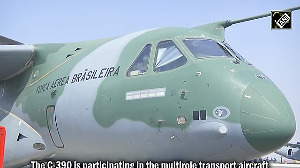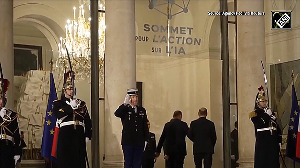In addition, there's now a policy that no tender conditions are to be changed after the bid has been called for (curiously, given how common this is, the AAI never had a policy prohibiting this), and a new system is being put in place to evaluate tenders which reduce the scope for human intervention -- all bidders have to submit their price bids in a certain format, and from there, it's supposed to be a simple matter of just comparing one number with another.
What is now proposed is that, as against the earlier procedure, which allowed vendors to change their hardware-software mix to dodge duty, the AAI will simply ask for costs regardless of duties, and evaluate the project costs on this basis.
Changing the hardware:software mix to impossible levels (it's like saying 95 per cent of the value of your Dell laptop is software!) to get an advantage on customs duties, by the way, is common across all government purchases.
Just recently, Lucent of the US alleged Chinese competitor Huawei Technologies had done precisely this in a BSNL tender for CDMA phones.
Spares are another big problem area. Vendors typically lower the cost of the original equipment and then inflate the cost of spares since they know a certain quantity of spares just has to be bought once they're in - printer manufacturers, by the way, do much the same thing when they virtually give away printers for free and then milk you on the cost of the ink cartridges.
What the AAI is planning to do is to ask companies to draw up a list of all spares (or at least the important ones) and give their prices along with the original equipment -- in which case, it will be in a position to come up with a proper evaluation of the actual life-cycle cost of the various equipment which is being bid for.
Here's wishing Mr Ramalingam all success.







 © 2025
© 2025